Institute of Technology, Resource and Energy-efficient Engineering (TREE)
Conference "Mobility of tomorrow" - Change is on the horizon
Opening and panel discussion in the Audimax of the university
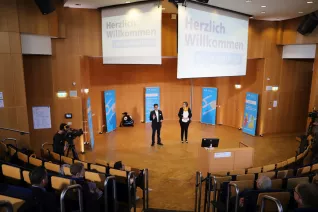
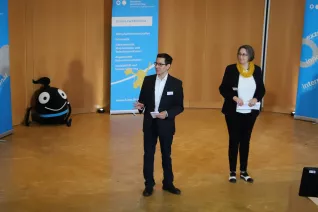
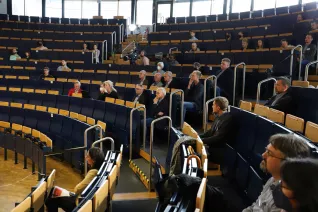
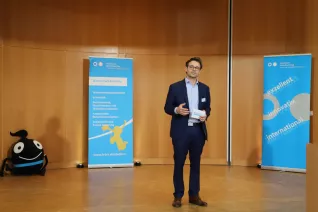
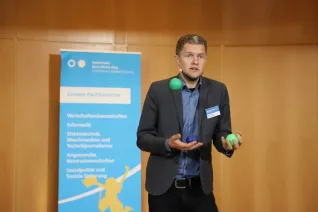
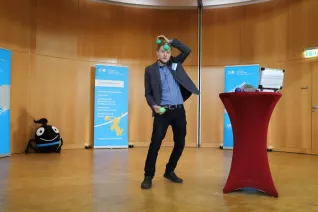
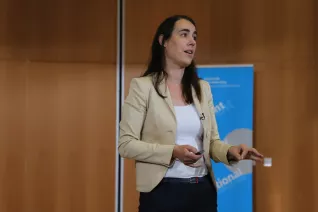
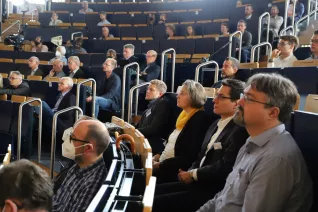
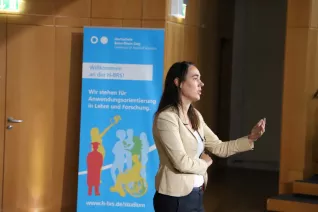
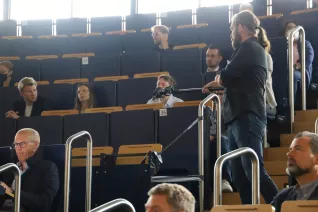
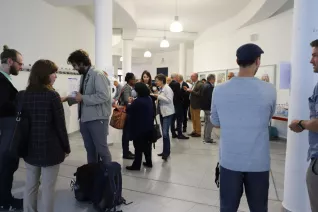
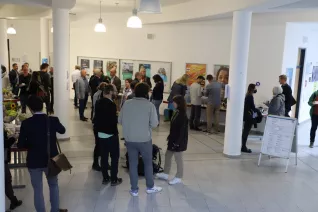
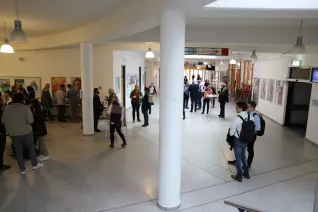
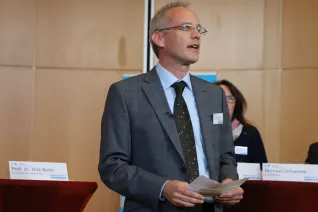
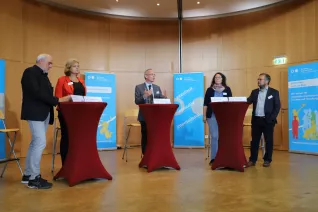
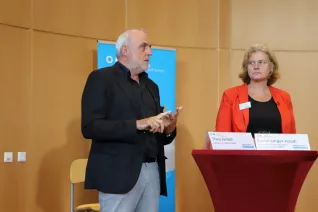
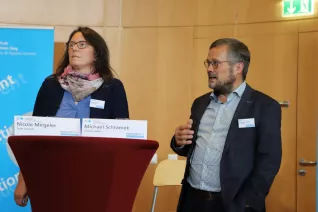
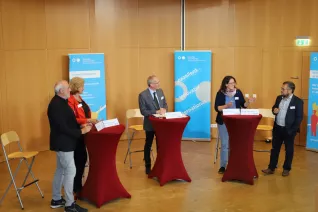
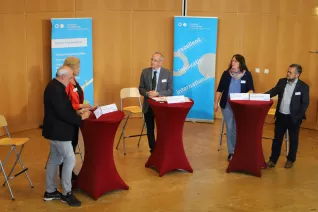
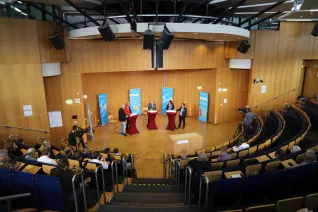
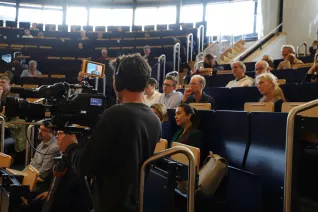
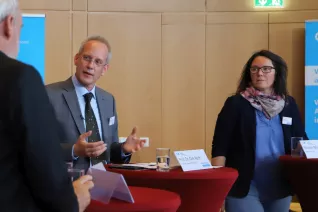
Professor Michaela Wirtz, Vice President Transfer, Innovation and Sustainability, and Sankt Augustin's Mayor Max Leitterstorf opened the symposium and both pointed out the enormous importance of the topic, especially with regard to climate change. The organizers were the Institute for Technology, Resource Efficiency and Energy Efficiency (TREE), the Institute for Consumer Informatics (IVI), the association "Network for Intelligent Mobility" (NiMo) and the municipalities of Sankt Augustin, Siegburg, Troisdorf and Königswinter. After an entertaining mobility juggling act by the mobility manager of the city of Siegburg, Rudolf Bergen, and the keynote speech by Anja Höhn (KVB) about the experiences with the 9-Euro ticket, the topic of mobility was examined from very different angles in four parallel tracks before the conference moved on to the final joint highlight, the panel discussion.
Moderated by TREE Director Professor Dirk Reith, the first topic was the prerequisites and success criteria for a successful "mobility turnaround", the necessity of which was not doubted by any of the discussants: Evelin Unger-Azadi (Ministry of Transport NRW), Nicole Mirgeler (City of Overath), Theo Jansen (Verkehrsverbund Rhein-Sieg - Zukunftsnetz Mobilität NRW) and Michael Schramek (EcoLibro GmbH). Not all questions could be answered - but it became clear that many things have already been initiated and that there are optimistic visions for the future.
Exhibition and action area in front of the university
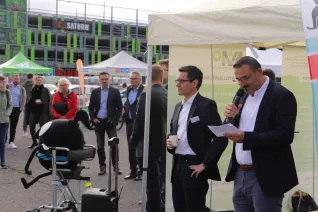
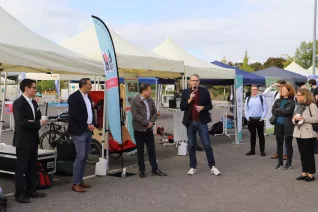
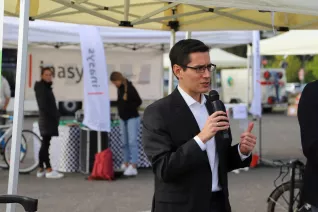
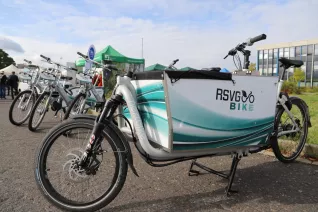
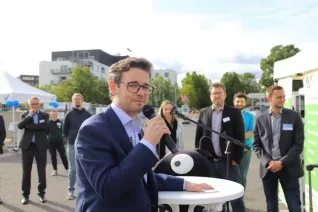
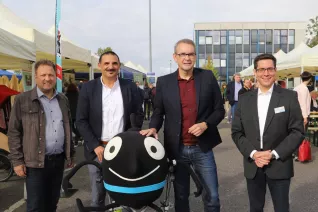
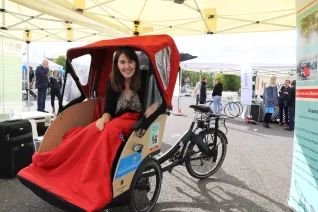
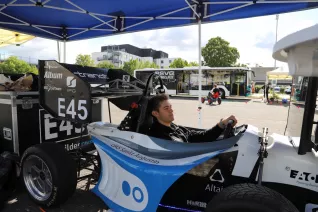
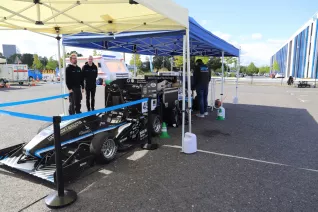
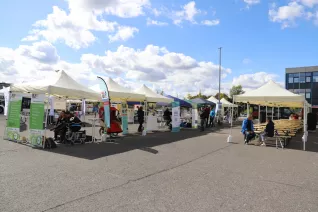
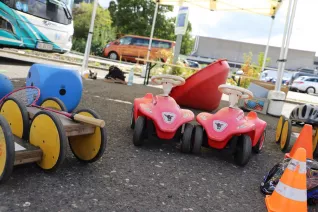
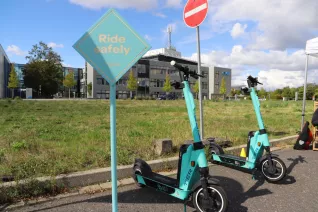
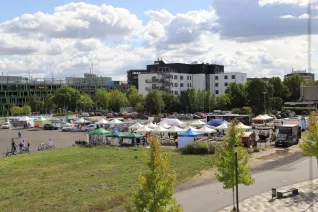
Workshop of the project "MobilCharta5" and live visualization
Parallel to the conference, the parking lot in front of the university was transformed into a large exhibition area with many action booths. But there was also a lively exchange of ideas: In between, participants of both formats made pilgrimages in one direction or the other under the common umbrella of the "First Intermunicipal Mobility Day of the Region". At the exhibition areas, where mobility could be experienced practically and all participants could strengthen themselves with a snack and a cappucino mobile, just as many discussions about current mobility alternatives took place as in the university street in front of the lecture halls, where one could exchange animatedly about what one had heard before.
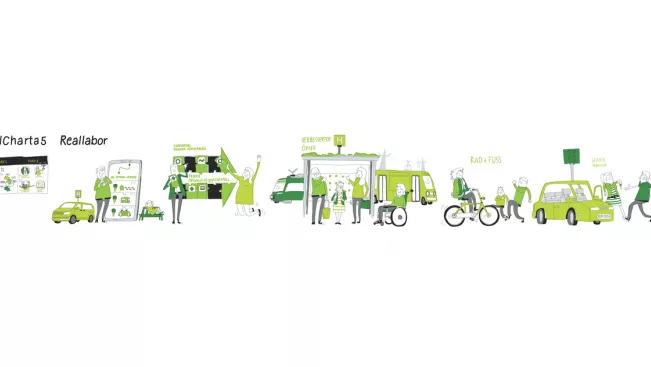
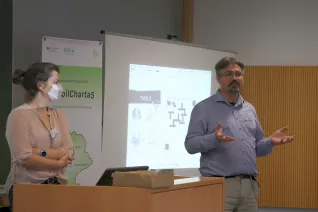
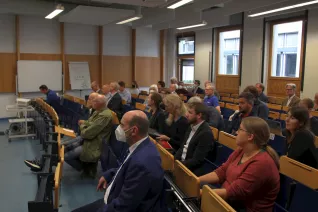
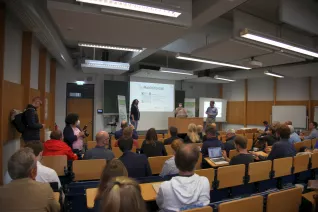
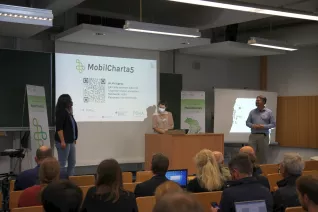
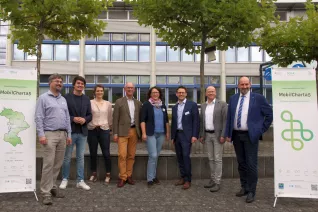
The track "MobilCharta5 - Shaping Mobility Together" was dedicated to current challenges in mobility in less densely populated regions, which were represented by the participating municipalities Overath, Hennef, Neunkirchen-Seelscheid, Much and Ruppichteroth.
The visitors were guided through the focus topics of the project in an interactive workshop by Nicole Mirgeler (project management city of Overath) and Veronika Krauß (project management Bonn-Rhein-Sieg University of Applied Sciences) and were involved in the design of the project with surveys and discussions.
Important questions on this day included:
- How can on-demand transportation be designed to meet demand and meaningfully integrated into everyday mobility?
- How can privately organized forms of mobility be supported?
- What are the problems of public transport in rural areas and how should public transport be designed in the future?
- How can we connect communities with safe cycling?
- How can we make sharing offers more attractive and link them with existing mobility offers such as citizen buses?
The commissioned visualization professional Volker Voigt (visualisierungs-fuchs.de), who accompanied the workshop, graphically staged the most important discussion points live.
Many exciting and important impulses also came up in the discussions.
These included:
- The mobility of tomorrow begins in the heads of today. It is important to involve as many citizens as possible in order to create acceptance.
- Children and young people must be taken into account in planning and implementation
- Municipalities would like to have a holistic offer in which all regional players are taken into account.
- A map with all mobility offers in the region would be very helpful for most.







































